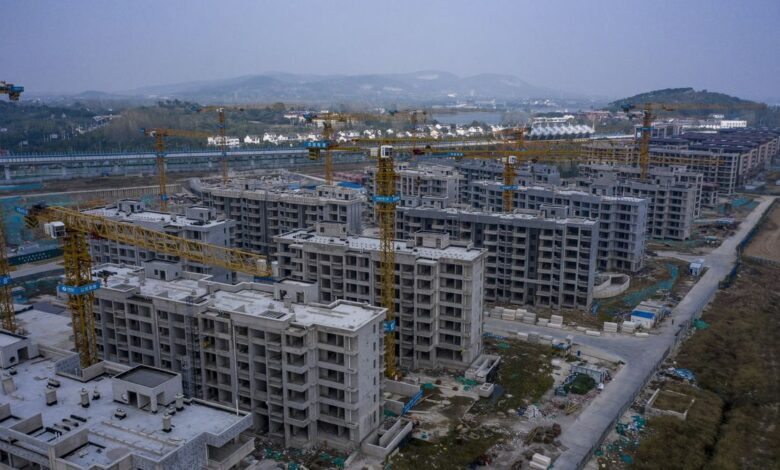China’s mortgage crisis can collapse its banking system
Protests are happening and the borrowers have become the worry of the banks. The exposed banks are Industrial and commercial Bank of China, China Construction Bank, Agriculture Bank of China, Bank of China and China Merchants Bank.

The real estate mortgage crisis is escalating, and multiple companies have already collapsed. Homebuyers in 22 cities are refusing to make mortgage payments on unfinished homes, Citigroup reports. The rare protest extends the risk of defaults from offshore developer bonds to banks with $6 trillion of mortgages. Which is nearly half of China’s GDP.
The refusal to pay premiums on mortgages is not surprising. Homebuyers have a long list of reasons to be furious. A large portion of the ventures was started by developers who have defaulted. China Evergrande Group led the pack, accounting for an estimated 35% of the total projects that faced mortgage revolts, data collected by CLSA shows. One such project in eastern Jiangsu province was started before the Covid-19 pandemic. Development has been suspended since last August, while property values in its area have decreased by around 10%.
In simple terms, the owners are seeing their investment go bust while they can’t even get possessions of their homes. Over the years, with permissions from local government, (usually involving corruption) the likes of Evergrande and Country Garden Holdings Co. fed the residential housing boom through a so-called pre-sales model: Apartments are bought long before they are completed. Now the builders don’t have money to finish these projects.
The economic miracle of the People’s Republic had some key features: Ever-rising home prices, surging household debt, and a real estate sector that broadly contributes to one-third of GDP. Wary of an asset price bubble, Xi drew three “red lines” last year to restrict financing and force developers to deleverage. A flurry of defaults ensued, including that of property giant China Evergrande, forcing bondholders to accept extensions or chase lawsuits. The revolt on mortgage payments underscores Beijing’s failure to ensure the losses stop there.
This crisis is mirroring the subprime mortgage crisis of 2008 and how it dragged the whole world into a recession. With the Russian war going on, the experts were already predicting a global recession in the coming year. Now with the addition of this crisis, it is almost a certainty.
The most likely outcome will be that Xi will bail out the banks as the American federal bank did in 2008. Although it will be a huge hit on the People’s Bank of China(The central bank that lays out the monetary policies), with a steadily growing economy and a large workforce. It is not something that China can’t afford. It has around $13 trillion in debt which is nearly 100% of its GDP. It will be interesting to see how it goes in the future.


